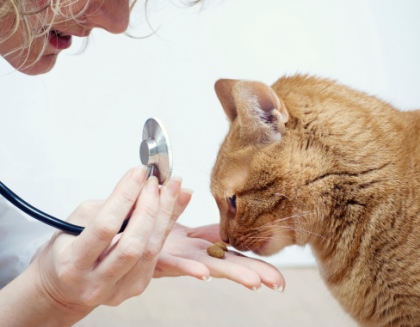
Companion Animals
Health Issues
Just like we do, our pets can suffer from illness, disease and other health issues and require proper care from the veterinarian and the pet owner. Whenever possible, prevention is always better than cure and this should go hand-in-hand with a healthy lifestyle and appropriate nourishment.
Below are links to useful information on some of the more commonly occurring diseases and health issues amongst pets.
Arthritis
When joints can no longer handle all the fun
Arthritis in animals often starts out with damage to joints that has gone unnoticed. The causes are diverse, such as strains, growth disorders, anatomical misalignments, general wear and tear, or bacterial infections. A damaged joint will try to compensate for injury by becoming inflamed and producing more, but inferior, synovial fluid (fluid lubricating the joints). The articular cartilage starts to deteriorate and so loses its ability to cushion the limb movements of the animal. What starts out as a natural protective response by the joint, develops into a chronic disease: arthritis. At this stage every movement hurts.
The animal reacts by modifying its natural behaviour and - more rarely - with whining and howling. Signs of arthritis can include, losing interest in physical activity and playing, having trouble standing up, the appearance of lameness or sometimes an aggressive reaction when certain parts of the animal's body are touched. Any of these behavioural signs could be an indication of arthritis and is sufficient reason for an immediate visit to the veterinarian.
Although arthritis cannot be cured, it is possible to provide the animal with some immediate pain relief. With painkillers, developed specifically for animals, the quality of life of your dog or cat can be notably improved. Once the pain subsides the animal will enjoy running around again and this is very important. Even pets affected by joint complaints should animals be given a controlled amount of activity so that the joints do not completely stiffen up. Physical activity also strengthens muscles, which in turn reduces the physical load on joints. Physiotherapy or acupuncture can also provide relief for dogs.
If the dog shows a slight weight increase, a change in diet is recommended. Each kilo less will take some load off sensitive joints. Support can also be obtained from supplementary diet items with cartilage forming or anti-inflammatory characteristics. These will keep the "joint grease" smooth and lower the risk of arthritis.
